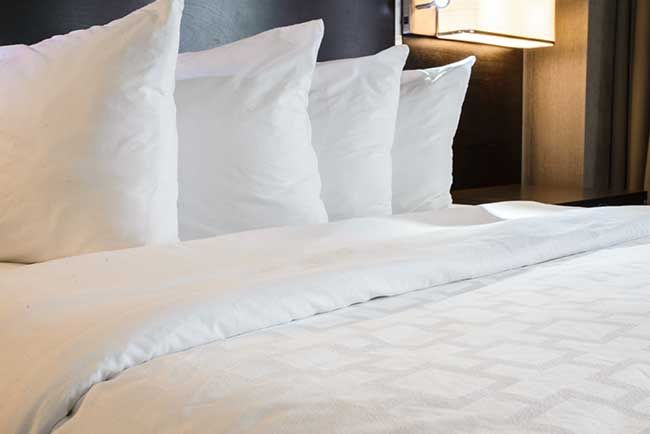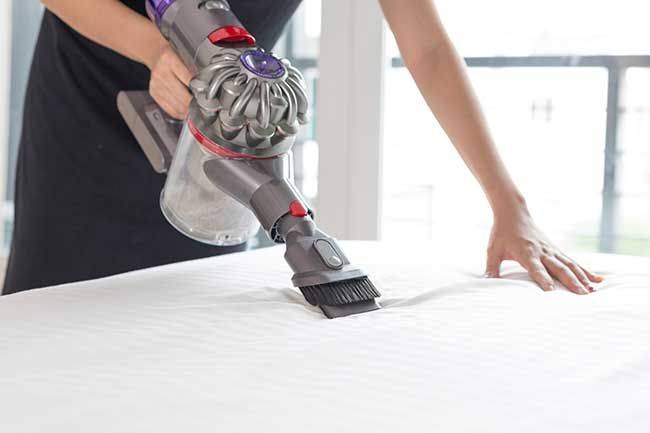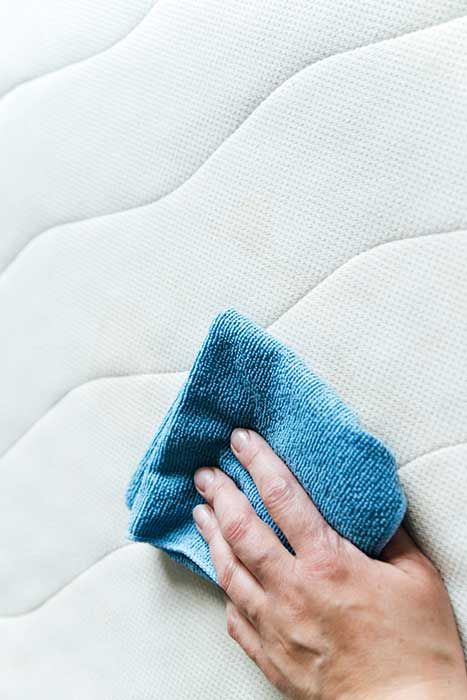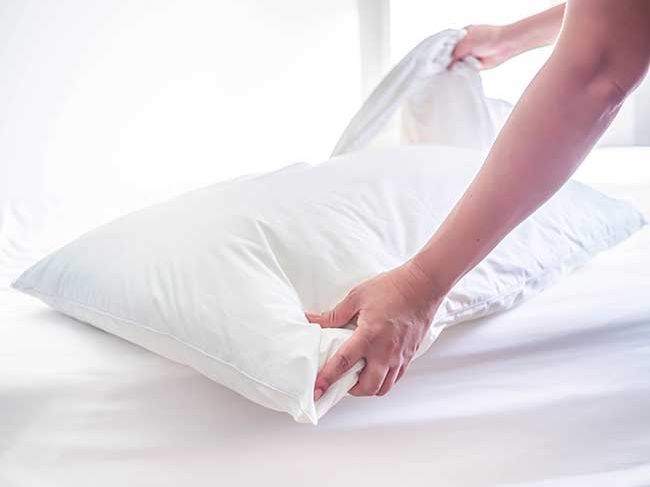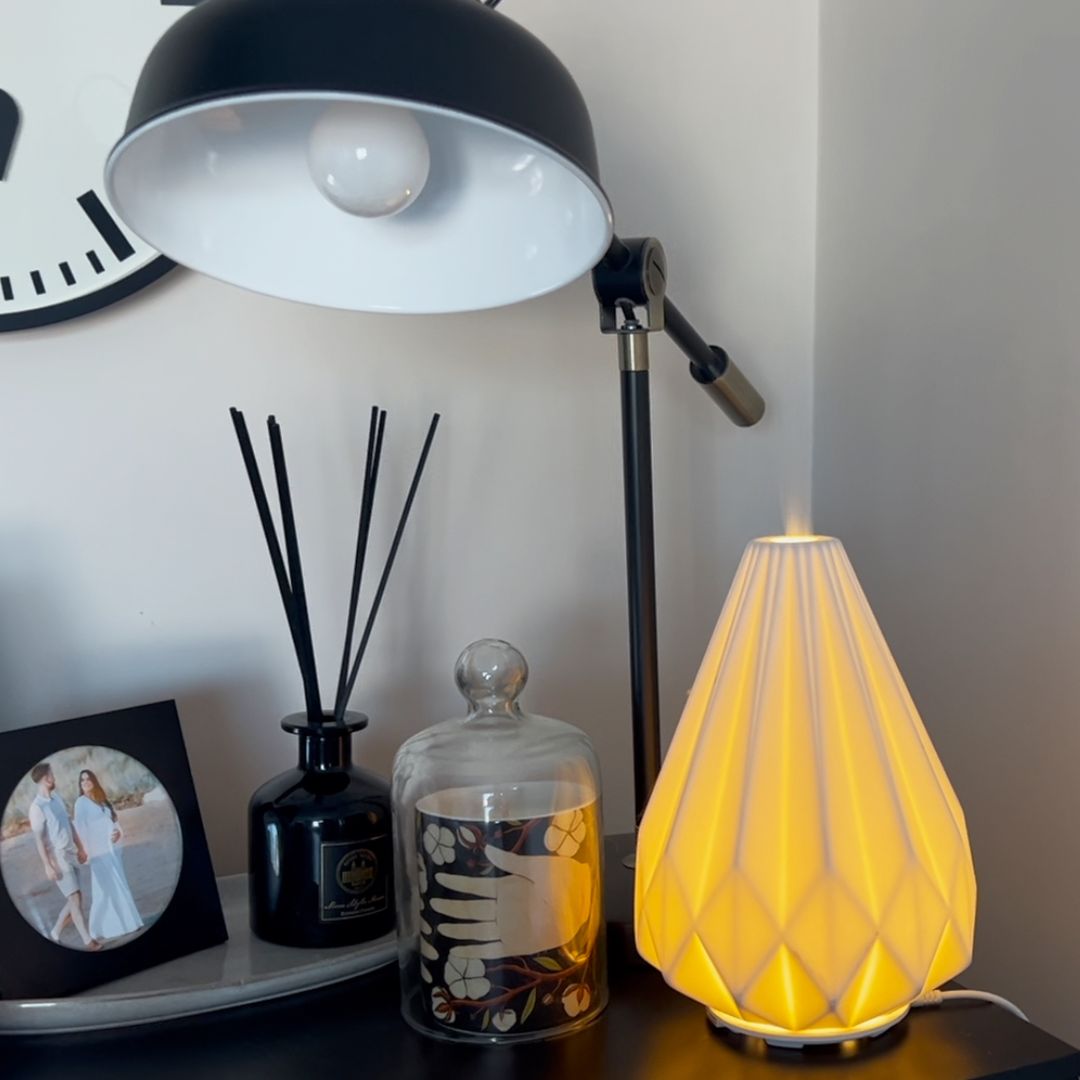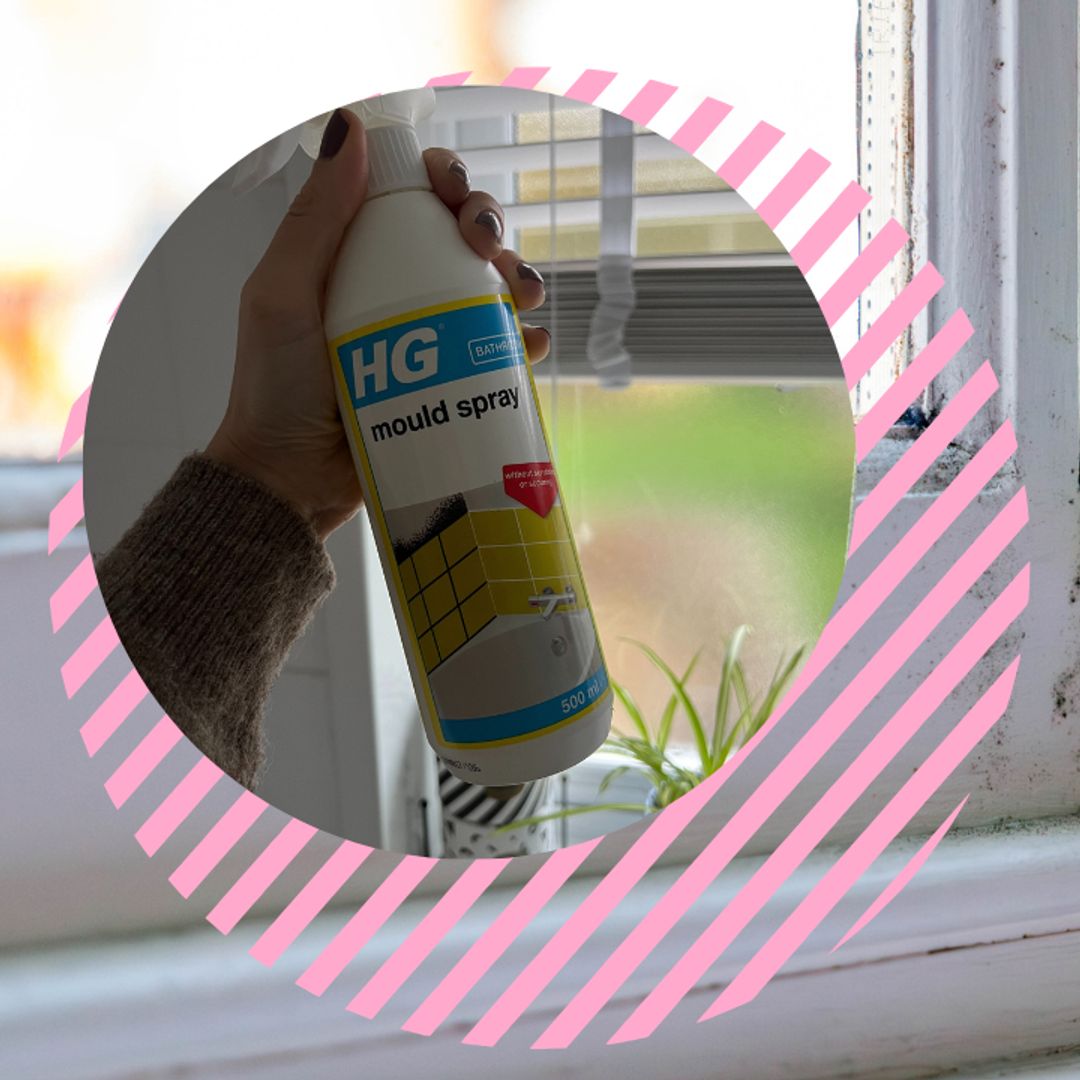When did you last clean your mattress? Chances are, it wasn't recently enough. Experts recommend we clean our mattresses every six months, but recent research has discovered that the vast majority of us do it much less frequently – or not at all.
The survey by bed retailer, Bensons for Beds, found that only 11 per cent of Brits clean their mattresses the recommended amount, while 40 per cent of us clean them less regularly. Meanwhile, one in six Brits never clean their mattress and eight per cent only do it when they have a stain.
We should all be cleaning our mattresses every six months
When you consider that the average adult spends seven hours or more in their bed every night, the buildup of bacteria and dust mites doesn't bear thinking about. Even if you're one of the guilty 15 per cent who never clean your mattress, it's not too late to get started. We asked the experts to share the top tips on what you should – and shouldn't do – when cleaning your mattress.
How to clean a mattress:
The process of cleaning your mattress will vary depending on whether it has any stains or not. If your mattress is stain-free, it is relatively easy to clean, and regular maintenance will keep it in top condition.
1. Strip the bed and check for any stains
Follow the expert tips below on how to remove stains from a mattress if you discover any.
2. Remove debris with a soft brush
It isn't recommended to vacuum your mattress
"It seems tempting to vacuum dust and fluff from your mattress but the powerful suction of a vacuum cleaner can cause the filling to become dislodged which can lead to bumps and dips. Instead use a soft brush to remove the debris onto the floor, which can then be vacuumed," the experts at And So To Bed recommend.
MORE: Best carpet cleaners for 2023
3. Rotate or flip your mattress and repeat on the other side
4. Air your mattress
Keep sheets and bedding off the mattress for a few hours to allow the fabric to breathe. This could also be a good opportunity to wash your duvet to ensure your bed is completely clean and germ-free.
5. Remake the bed
When you're ready, remake the bed with clean sheets and bedding. Follow the steps below to improve the longevity of your mattress and keep it clean for longer.
How to remove stains from a mattress:
1. Tackle stains as soon as possible
The best way to eliminate stains is to try and clean them as soon as possible, as dried on stains can be much harder to remove.
2. Always check the mattress label
Be careful to check the mattress label before you apply any cleaning products to avoid damaging the fabric, and test any cleaning solution on a small part of the stain or a concealed part of the mattress first.
3. Blot stains, don't scrub
Bicarbonate of soda and chemical solutions are often recommended for removing stains, but these should be avoided if possible.
Instead, immediately blot stains with a clean cloth. This should be dry if your mattress is filled with natural fibres. Other mattresses may be able to withstand warm soapy water on a rung out clean cloth, but always check the manufacturer's recommendations before cleaning.
It's recommended to blot stains rather than scrub them
How to make your mattress last longer:
1. Invest in a mattress protector
Prevent your mattress from getting damaged from spillages or stains by investing in a mattress protector. As they are washable, they can easily be removed and cleaned in the washing machine should an accident happen, leaving your mattress damage-free. It also has the benefit of wicking moisture away from your mattress to help it last longer.
2. Flip your mattress regularly
Meanwhile, Hannah Shore, Silentnight Sleep Expert, says simply flipping your mattress regularly can help to keep it cleaner for longer without damaging it.
"Flipping your mattress regularly will also help to keep the mattress fresh, as well as maintain the springs within the mattress, helping to extend its lifespan," she says.
3. Don't make your bed
You may have grown up being taught to always make your bed as soon as you wake up, but this may actually be damaging your mattress – and be bad for your hygiene.
RELATED: The best beds and bed frames to help you sleep at night
Martin Gill, MD of And So To Bed, reveals: "If you want to ensure the longevity of your mattress a really good habit to get into is to resist the urge to make the bed when you get up. By making our beds in the morning we are trapping in all our moisture, not allowing it to evaporate, which could lead to issues within the mattress fibres."
He continued: "Instead pull back the linen and the mattress protector, open the windows and give your mattress some much needed ventilation!"
4. Don't forget your bedding and pillows
Don't forget to clean your duvet and pillows regularly too
Once your mattress clean is complete, don't forget to freshen up your duvet and pillows while you're at it! Argos recently did some research that discovered that 70 per cent of millenials don't know how to clean their duvet and are more likely to get rid of it if it smelt bad rather than cleaning it themselves.
Hygiene expert, Luke Rutterford, says: "Whilst treating yourself to a new duvet can seem like the easy option, it is very easy and cost-effective to keep your bedding clean with simple tried and tested hacks."
READ: 14 bedroom decorating ideas you won't be able to resist
MORE: 12 small bedroom ideas to maximise space and make it feel bigger
Luke also explains that it can be beneficial to open your curtains to expose your bedding to sunlight. "This can minimise microbiological activity as sun rays contains UV radiation – scientifically proven to kill bacteria," he adds.
The experts at And So to Bed suggest to wash your bed linen every one to two weeks and your mattress protector once a month. "Regularly cleaning these will stop any dirt seeping through the mattress, keeping it cleaner for longer. In the summer, you may have to clean your linen and protector more regularly due to sweat," they explain.
How often should you replace your mattress?
While cleaning your mattress may help to prolong its lifespan, they should still be replaced more often than you might expect, both for hygiene and comfort reasons.
“If your mattress is not showing signs of wear and tear, you might think there is no need to replace it. However, it is recommended that a mattress should be replaced every six to eight years,” Levon Hall from Bed Kingdom says.
"As well as causing muscle, back and joint pain, an uncomfortable mattress can result in a lack of sleep, which has been linked to several other health conditions, such as diabetes, heart disease and high blood pressure. A dirty mattress provides the perfect conditions for bacteria, fungi and dust mites to thrive and reproduce, ultimately impacting your health without you realising."
HELLO!'s selection is editorial and independently chosen – we only feature items our editors love and approve of. HELLO! may collect a share of sales or other compensation from the links on this page. To find out more visit our FAQ page.
Like this story? Sign up to our HELLO! Mail newsletter to receive all the latest royal and celebrity news straight in your inbox.


